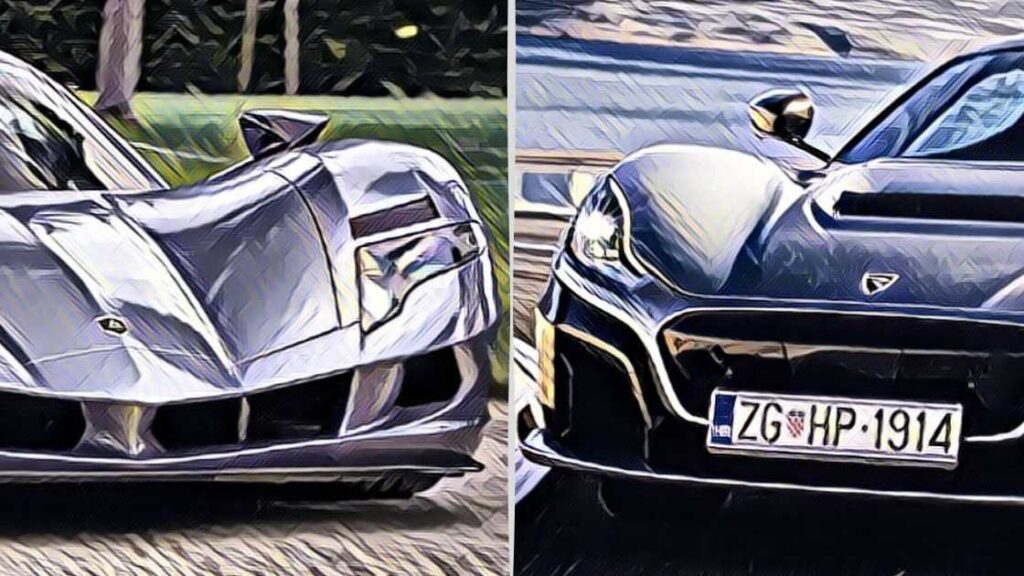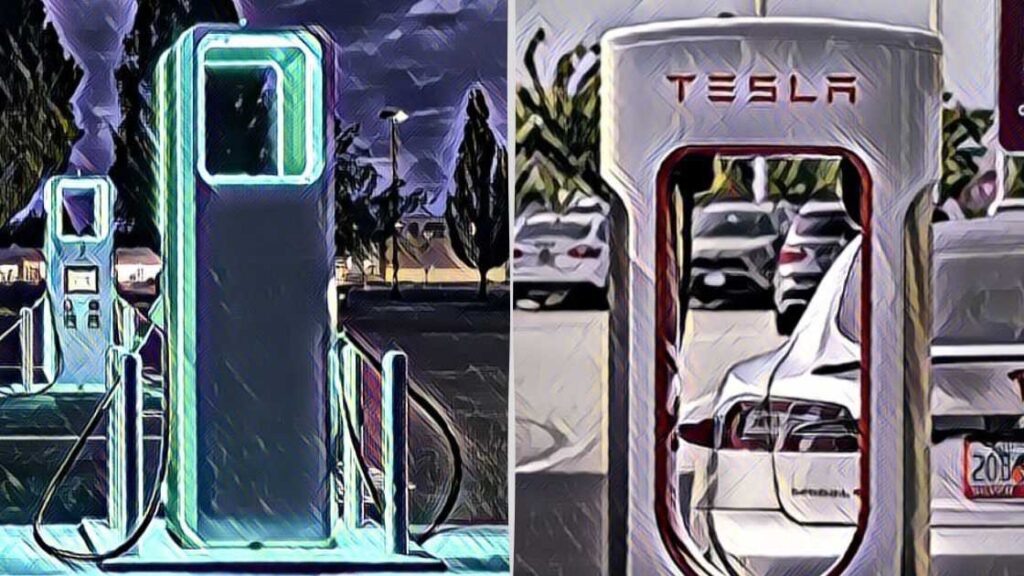Who buys the most electric cars? By mid-2023 almost 15% of all new car sales in the world were EVs. Electric Vehicles account for 7.1% of new car sales in the United States, not enough to make the top 10.
Who Buys the Most Electric Cars?
Which countries are buying the most electric cars? We take a look at the top 10 countries with the biggest uptake of electric cars in the world by market share to see who is leading the EV race.
10. Australia (7.4%)
The electric vehicle market in Australia is growing rapidly with the market share of EV sales exploding from 1.8% to 7.4% in the space of 12 months. That’s despite the lack of public charging network stations in Australia compared to other countries.
Electric vehicle tax breaks such as exemptions on the 33% Luxury Car Tax (LCT) up to a certain threshold has helped to drive sales figures up. Tesla dominates the market with the Model Y the most popular model down under.
9. France (12.3%)
France has a well-established automotive industry but like the rest of Europe is playing catch-up against China. EVs account for 12.3% of new car sales in France thanks to friendly incentives for new cars.
Even used cars have cash rebates for low household incomes helping to drive up EV ownership. To combat the dominance of foreign owned electric vehicles the French government is shifting to limiting incentives to European built models only.
8. Germany (13.5%)
Considering how much of a powerhouse Germany is in the automotive industry, they’ve been lagging behind their rivals with most of the biggest electric car companies being based in China.
The Volkswagen Group will likely penetrate Europe’s adoption of electric vehicles in the coming years through their brands that include Audi, SEAT, Skoda and Volkswagen. About 13.5% of the new car market in Germany are electric vehicles and the adoption rates of EVs are at a high rate.
7. New Zealand (15%)
New Zealand has historically had one of the highest costs of gas in the world and the taxes on petrol is typically double that of neighbouring Australia. It’s no surprise then that the adoption rates for electric vehicles are high in New Zealand at about 15% of all new vehicle purchases.
More than 80% of New Zealand’s electricity is from renewable sources and the majority of households park off-street making it easier for individuals to charge.
6. United Kingdom (16.9%)
In the United Kingdom almost 17% of all new car sales are either hybrid or fully electric. Like many markets across the world the Tesla Model Y is the most popular model.
Whether this growth continues remains to be seen as the UK government ended all cash incentives for buying an EV. By 2030 all new cars in the United Kingdom will need to be at least hybrid, and by 2035 will all need to be fully-electric.
5. Netherlands (45%)
The Netherlands have been early adopters of electric vehicles with 45% of all cars purchased being electric, and the country aims for all new vehicles sold to be battery operated by 2030. Electric cars are tax-exempt from road tax until 2024, and no tax is paid on new electric car purchases until 2025.
Commercially there are subsidies for fleet electric vehicles available, and the Netherlands also has the best *electric bus network in Europe. By 2025 the country will no longer purchase internal combustion engine buses.
4. China (59%)
By far China is the largest producer of EVs in the world and it’s the Chinese who are buying the most electric cars. Many of the *biggest electric car companies* are Chinese including BYD, Geely, GAC and Chery and 59% of all new EVs bought globally in 2022 were in China.
China has notoriously struggled with air pollution so they started investing in electric vehicle technology as far back as in 2001. They’re now well ahead of the game and have been reducing their dependence on fossil fuels well ahead of other countries.
Further proof that China is the undisputed leader of EVs can be seen in their electric bus networks and they owned 99% of the world’s electric buses in 2019. In 2022 China reached over 10 million total electric vehicles on the road, about 46% of the entire global total.
3. Sweden (62%)
Cars are Sweden’s highest import and export product. Sweden is also home to Volvo and the company plans to sell only electric vehicles by 2030. Local heroes such as the Volvo XC40, Volvo C40 and the Polestar 2 sell well.
The Swedish are amongst the biggest buyers of electric cars with 62% of cars sold being electric. The country is also on track to build the first EV charging road.
2. Iceland (85%)
In 2014, there were under 100 electric vehicles in Iceland. In 2023, 85% of private cars sold in Iceland were electric vehicles. Quietly, Iceland buys the second most electric cars in the world by market share and is leading the way alongside their Scandinavian neighbours.
Cheap renewable power, high costs for fossil-fuels and an advanced charging infrastructure network makes EV ownership ideal in Iceland. Electric vehicles also attracts tax breaks and the high urbanization in the country means that range is not a problem.
1. Norway (90%)
On a market share basis Norway buys the most electric cars and are the best at EVs in the world. Norway has so many EVs because of the tax breaks, incentives and its well developed charging network, and 90% of all new cars are electric.
Electric vehicles are very popular in Norway mostly because of cheap hydroelectric power available in the country. Norwegians benefit from some of the lowest electricity prices in the world thanks to the more-than 1,500 hydroelectric power plants.
EVs in Norway also benefit from financial incentives such as tax exemptions, free parking and free tolls which makes it a very attractive option compared to ICE (internal combustion engine) cars.
Norway is pulling back on incentives for EVs, but ICE cars have been so heavily disincentivized and have a 25% VAT, and another 20% carbon tax to discourage gas or petrol powered cars.




